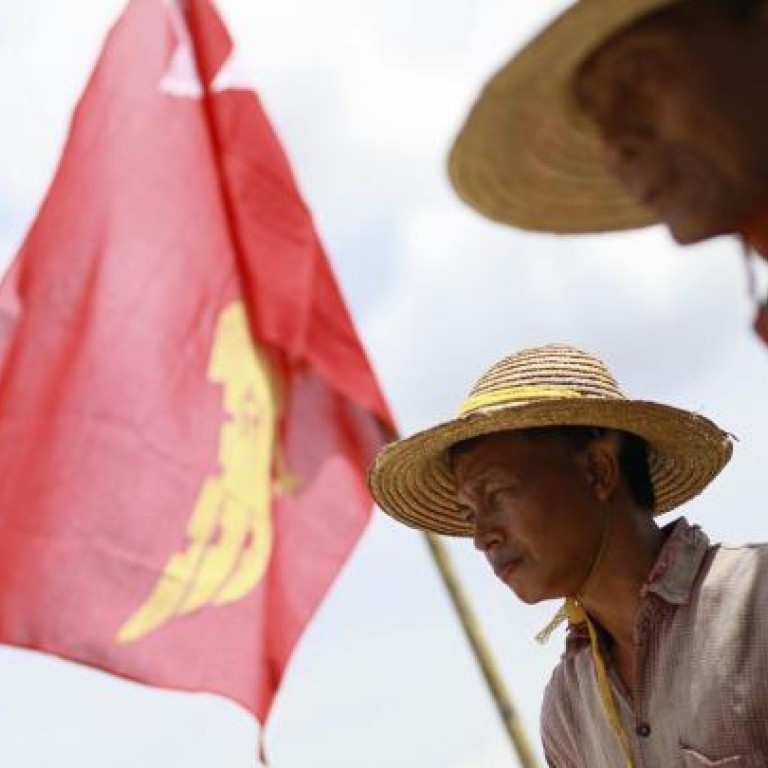
Myanmar farmers and villagers test newfound freedoms with protests
After decades of fear and persecution under rule of junta, villagers in rural Myanmar are testing the limits of their newfound freedoms
Farmers and villagers in Myanmar are risking the fury of the authorities by standing up to big business in a test of new rights unthinkable during decades of military rule.
Hundreds of people in the central town of Monywa, Sagaing division, have taken to the streets in recent months. They opposed the confiscation of their land to make way for a Chinese-backed copper mine and expressed their fears over pollution in the area.
"We have only dared to speak out about our suffering now because we heard that we can talk openly thanks to the change in government. We did not dare to complain... when they were soldiers," 38-year-old farmer Myat Thaung said.
For decades, public protest was the preserve of the brave or desperate. The junta did not flinch at meeting civilian demonstrations with army firepower.
But a new civilian regime, which came to power after the military loosened its grip on the country last year, has been keen to tout its reformist credentials.
It has freed veterans of past uprisings from jail and welcomed democracy campaigner Aung San Suu Kyi into parliament.
President Thein Sein approved a bill allowing peaceful assembly in December last year.
But rights groups criticised rules that mean demonstrators risk a year in jail if they do not seek permission five days in advance.
Pockets of protest have erupted all over the country, from wage strikes at Yangon factories to land demonstrations in remote farmlands, as Myanmar's long-suppressed population tests the limits of its freedoms.
The Monywa copper mine, a joint venture between military-owned Myanmar Economic Holdings and China's Wanbao company, has led to 3,200 hectares of land being confiscated from local farmers without consultation and, in some cases, without compensation.
Myat Thaung said he received around US$4,000 for the loss of his farmland, but has since spent all the money on looking after his family. He is now unemployed. "We did not sell our land - why would we sell our children's birthrights? They are the ones who lied to us by confiscating our farmlands," said the father-of-four at his village near Monywa. A few kilometres away in the village of Kankone Gyi, residents are engaged in a separate fight against a sulphuric acid factory.
For five years the villagers bore the choking pollution in silence. Not any more.
"Because of the smoke coming out of that factory, we cannot breath. Whenever it operates, we suffer," said Khin San, 67, one of about a hundred villagers who protested recently.
The renowned Generation 88 movement, born during huge 1988 student-led demonstrations that were brutally crushed by the military, has become a key advocate for ordinary people in land and worker disputes.
"They kept their pain in their hearts for years. Now the first stage of transparency has arrived and they are starting to know how to defend their rights," said the group's Kyaw Min Yu, who travelled to Monywa to negotiate the release of detained protesters.
"Both sides have to be careful not to threaten each other. Those with power need to be particularly restrained," he said.

